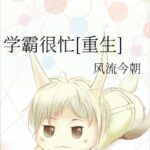逝去的國王
拉丁語:
Haud multō post pestilentiā labōrātum est. Rēx ferus et bellicōsus, quī ante deōrum oblītus erat, nunc mūtātus est et nūmina verēbātur. Sed Tullus, ut sacrīs Iovis fungēbātur, sīve verbīs seu rēbus errāvit, itaque ā deō, quīīrātus est, fulmine ictus est cum domo suā ārsit. Tullus magnā gloriā bellī rēgnāvit annōs duōs et trīgintā.
Post hunc Ancus Mārcius, Numae ex fīliā nepōs, rērum postītus est. Hic vir, aequitāte et religiōne avō similis, Rōmulī etiam meminerat; sīc igitur bellō fruēbātur ut sacrīs deōrum gāvīsus est. Latīnōs bellō domuit, urbem ampliāvit, et eī nova moenia circumdedit. Ad Tiberis ostia urbem condidit, Ostiamque vocāvit. Vīcēsimō quartō annō imperī morbō obiit.
Tum cum Ancus Rōmae rēgnābat quīdam Lucumō, vir impiger et dīvitiīs potēns, Tarquiniīs Rōmam commigrāvit. Inductus erat cupīdine ac spē magnī honoris cuius Tarquiniīs (nam ibi quoque peregrīnā stirpe oriundus erat) facultās nōn fuerat. Dēmarātī Corīnthiī fīlius erat, quī ob sēditiōnēs profugus Tarquiniīs consēderat. Post mortem patris dīvitis hērēs Lucumō tōtā pecūniā Dēmarātī fruēbātur, quae dīvitiae ut animōs eī faciēbant sīc uxor Tanaquil, quae Tarquiniīs summō ub locō nāta erat, auxit. Haec fēmina superba nōn facile rēs humilīs patiēbātur, sed coniugī, quod peregrīnus erat, nūlla honōris spēs Tarquiniīs fuit. Quam indīgnitātem quia aequō animō nōn ferēbat, “Hīc,” inquit, “mī marīte, nōn morābimur, sed nōs Romam conferēmus, ubi honōre magnō in novā urbe nōn exclūdēris.”
Rēs ergō sustulērunt et ēmigrābant Rōmam. Ad Ianiculum forte ventum erat. Ibi eī, ut in carpentō cum uxore sedebat, aquila pilleum abstulit, et postquam altēēvolāvit, capitī aptē reposuit. Accēpit id augurium Laeta Tanaquil, perīta, ut vulgō Etrūscī, caelestium prōdigiōrum mulier. Virum complexa est et “Excelsa et alta” inquit “spērā, nam ea avis quae ex eā rēgiōne caelī et eius deī nūntia vēnit sustulit quod humānō capitī superpositum erat deinde dīvīnitus eīdem reddidit. Utere ergō hāc fortūnā quam deus tibi dedit.” Hās spēs cogitātiōnēsque sēcum portābant ut in urbem ingressī sunt, ubi domum ēmērunt et L. Tarquinium Prīscum ēdidērunt nōmen.
Rōmānīs cōnspicuum eum novitās dīvītiaeque faciēbant; et ipse fortūnam benignō adloquiō beneficiīsque (nam ita pecūniā suā ūtēbātur) adiuvābat, multōs enim sibi sīc conciliāvit. Dēniquein rēgiam quoque dē eō fāma perlāta est. Mox in familiāris amīcitiae adductus est iūra, et nōn modo publicīs sed etiam prīvātīs cōnsiliīs intererat; postremō tūtor etiam līberīs rēgis testāmentōīnstitūtus est.
英語:
So it suffered an epidemic not that later by months. The savage and warlike king, who before had forgotten of the gods, now he was changed and was fearing the divine. But as Tullus was performing the sacred rites of Jupiter he was wrong whether with words or with other things, therefore he was struck by lightning by a god who was angered and burned his house. Tullus ruled with great glory of war for thirty-two years.
After this guy, Ancus Marcius, grandson of Numa, took control of public affairs from his daughter. This man, similar to his grandfather in fairness and religion, also remembered Romulus: so therefore he enjoyed the war as he rejoiced in the rites of gods. He dominated the latins in war, enlarged the city, and gave new walls to it. He founded the city at the mouth of the Tiber, and called it Ostia. In the 24th year of his power, he met death by disease.
Then when Ancus was ruling at Rome, a certain Lucumus, an active man and powerful due to wealth, emigrated to Rome from Tarquinia. He had been led by desire of hope for great honor, of which at Tarquinia there had not been an opportunity (for there also he had risen from foreign stocks). He was the son of Demaratus Corinthas, who, because of insurrection, was an exile settled in Tarquinia. After the death of his rich father, the heir, Lucumus, enjoyed all the money of Demaratus, just as wealth made his spirit happy, just so his wife, Tanaquil, increased the spirit, who was born in a high place at Tarquinia. This excessively arrogant woman did not easily endure humble things, but for her spouse, because he was a foreigner, he had no hope of power at Tarquinia. Since she was not bearing this indignity with a calm mind, she said, “Here, my husband, we will not stay, but we will bring ourselves to Rome, where you will not be excluded from great honor in the new city.”
Therefore they picked up their things and migrated into Rome. By chance they arrived at the Janiculum. There, as he was settling in the cart with his wife, an eagle stole his hat, and after flew high, put it back onto his his head appropriately. As commonly for an Etruscan, a woman skilled at heavenly omens, happy Tanaquil accepted the bird omen. She embraced her husband and she said, “Hopes for lofty high things, for the bird which came from this region of the sky, even as a messenger of the god picked up the hat, then by divine will, put back to the same place, make use of this luck which the god gave to you.” They are carrying these hopes and thoughts with them as they enter the city, where they bought their house and they give out the name L. Tarquinium Priscum.
The newness and wealth were making them remarkable to the Romans; and he was helping his fortune with kind speeches and favors (for so he used money). So therefore he won over many people to himself. Finally a report about him was brought to the palace. Soon he was led into the familiar friendship, and he was involved not only in public affairs but also private plans; finally, he was established as a guardian for the children of the king by his will.
中文:
因此,沒過幾個月,它就遭受了傳染病。那個野蠻好戰的國王,以前忘記了諸神,現在他變了,開始敬畏神靈。但當圖勒斯(Tullus)在執行朱庇特的神聖儀式時,他的言語或其他事情上有錯誤,他被憤怒的神明擊中,并燒毀了他的房子。圖勒斯以戰争的輝煌統治了三十二年。
在這個家夥之後,努馬的孫子安庫斯·馬修斯(Ancus Marcius)從他女兒的手中掌控了公共事務。這個人在公平和宗教方面與他的祖父相似,也記得羅穆盧斯:因此他在享受戰争的同時也享受神的儀式。他在戰争中統治了拉丁人,擴大了城市,并修建了新的城牆。他在臺伯河口建立了這座城市,并将其稱為奧斯蒂亞(Ostia)。在位第24年,他因病去世。
當安庫斯在羅馬統治時,一位活躍的人、因財富而強大的盧庫姆斯(Lucumus)從塔爾奎尼亞(Tarquinia)移民到羅馬。他一直渴望獲得巨大的榮譽,而在塔爾奎尼亞那裏卻沒有機會(因為他也是從外國人的後代)。他是德馬拉圖斯·科林薩斯 (Demaratus Corinthas) 的兒子,後者因叛亂而被流放并定居在塔爾奎尼亞。在他富有的父親去世後,繼承人盧庫穆斯享有德馬拉圖斯的所有金錢,正如財富使他的精神快樂一樣,正如他的妻子塔納奎爾(Tanaquil)增加了地位,她出生在塔奎尼亞的高階級。這個過于傲慢的女人不容易忍受卑微的事情,但對于她的丈夫來說,因為他是外國人,所以他在塔奎尼亞沒有權力的希望。由于她沒有冷靜地承受這種侮辱,所以她說:“我的丈夫,我們不會留在這裏,但我們會前往羅馬,在那裏你不會被排除在新城市的巨大榮譽之外。”
因此,他們收拾起自己的東西,移居到羅馬。一次偶然的機會,他們來到了Janiculum。在那裏,當他和妻子坐在馬車上時,一只老 鷹偷走了他的帽子,飛得很高後,又把帽子恰當地放回了他的頭上。正如伊特魯裏亞人(Etruscan)通常擅長天兆的女人一樣,快樂的塔納奎爾接受了鳥的預兆。她擁抱着她的丈夫,說道:“希望有崇高的事物,希望來自天空這一地區的鳥,就像神的使者一樣拿起帽子,然後根據神的意志,放回原處,希望神賜予你的運氣。” 當他們進入這座城市時,他們就帶着這些希望和想法,在那裏他們買了房子,并給他們起了個名字:L. Tarquinium Priscum。
新穎的面孔和財富使羅馬人對他們刮目相看。他通過善意的演講和恩惠來幫助他的時運(因此他使用金錢)。因此他贏得了很多人的支持。最後,有關他的報告被帶到了皇宮。很快他就成為了皇帝的智謀,他不僅參與公共事務,而且參與私人計劃;最後,他根據國王的意願被任命為國王子女的監護人。





